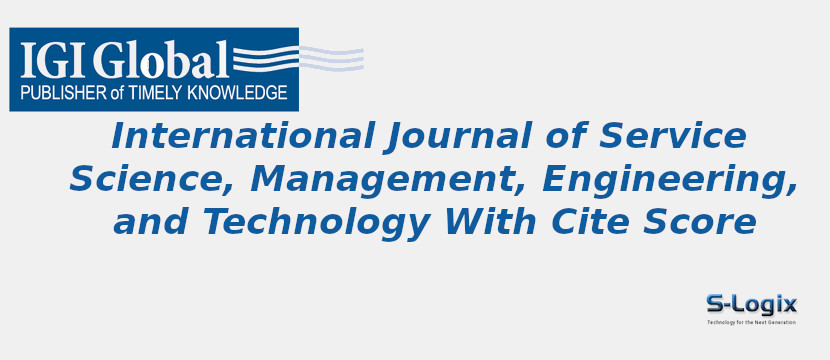Journal Home: Journal Homepage
Editor-in-Chief: Ahmad Taher AzarÂ
Print ISSN: 1947-959X
Electronic ISSN: 1947-9603
Abstracting and Indexing: Scopus
Imapct Factor :
Subject Area and Category: Business, Management and Accounting, Business, Management and Accounting (miscellaneous), Computer Science, Computer Science (miscellaneous), Engineering, Engineering (miscellaneous), Multidisciplinary, Multidisciplinary
Publication Frequency: Bi-Monthly
H Index: 21
Q1:
Q2: Multidisciplinary
Q3:
Q4:
Cite Score: 5.6
SNIP: 0.575
Journal Rank(SJR): 0.310
Latest Articles: Latest Articles in International Journal of Service Science, Management, Engineering, and Technology
Guidelines for Authors: International Journal of Service Science, Management, Engineering, and Technology Author Guidelines
Paper Submissions: Paper Submissions in International Journal of Service Science, Management, Engineering, and Technology
Publisher: IGI Global Publishing
Country: United States
